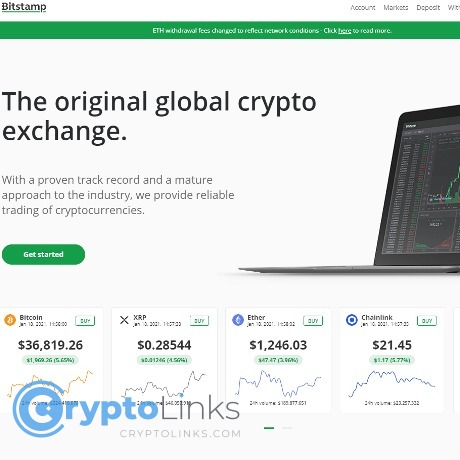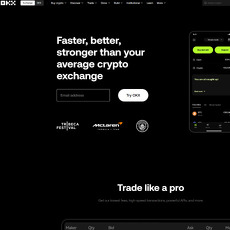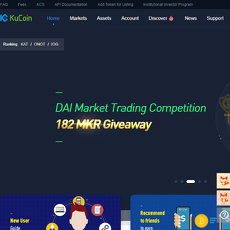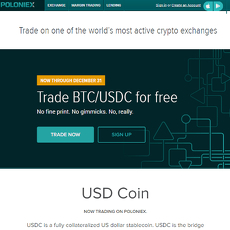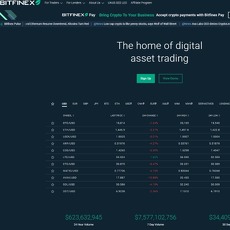Bitstamp Review
Bitstamp
www.bitstamp.net
(14 reviews)
(14 reviews)
Site Rank: 12
Bitstamp.net Review
It is common knowledge that exchanges have a critical role to play in the crypto industry. To a large extent, the quality of services disseminated to users very much determines how enjoyable it is to own digital assets. This is why we have committed to researching a broad range of crypto exchanges and ranking them accordingly. In this guide, we will highlight the operations of an established crypto exchange, its historical background, and the factors to consider before adopting its services. Below is a comprehensive review of Bitstamp.
What is Bitstamp?
Bitstamp is a crypto exchange designed to cater to intermediate and experienced traders. Unlike a majority of trading websites, the platform provides trading infrastructures for a handful of cryptocurrencies, most especially the established ones. Here, you can buy, trade, or sell bitcoin, XRP, Ether, ChainLink, Litecoin, Bitcoin Cash, Stellar lumens, USD Coin, Paxos Standard, and OMG Network.
Although Bitstamp restricts users to just 10 cryptocurrencies, it has maintained its status as one of the largest and most popular exchanges in the cryptoverse. At the time of writing, Bitstamp processes over $900 million worth of cryptocurrency trades a day. There are only 42 crypto pairs available on the platform, and as expected, BTC/USD generates the highest volume. Regardless of its selective nature, the exchange has emerged as one of the top options for institutional investors or traders looking to purchase or trade a high volume of cryptocurrencies.
Another thing that sets Bitstamp apart is the fact that it supports fiat payment methods. In other words, it also serves as a fiat-based crypto portal as users can use a variety of popular payment services to purchase crypto. You can buy bitcoin on Bitstamp using international wire transfer, SEPA, or debit/credit cards. Note that each payment option has a basic transaction fee. We will discuss more on this in the Bitstamp fees section.
Currently, the exchange is available in all European Union countries, the US, Taiwan, South Korea, Australia, New Zealand, Japan, Argentina, Brazil, Israel, South Africa, Chile, Kuwait, Cayman Islands, Qatar, Saudi Arabia, Ecuador, Trinidad and Tobago, Barbados, Réunion, Switzerland, Norway, Monaco, Montenegro, Serbia, Turkey, Andorra, Moldova, Gibraltar, Iceland, Greenland, Liechtenstein, Isle of Man, Faroe Islands, Åland Islands, San Marino, Hong Kong, China, Singapore, Jamaica, Paraguay, Brunei, New Caledonia, Guadeloupe, Martinique, and Sint Maarten.
What Is the Historical Background of Bitstamp?
Launched in 2011 in Slovenia, Bitstamp is one of the earliest exchange platforms dedicated to digital assets. The founders of Bitstamp, Nejc Kodric and Damijan Merlak, created Bitstamp as a direct competitor to the then-dominant Mt.Gox exchange. Since it launched, the duo has worked to elevate the regulatory and business operations of Bitstamp to a global standard. Hence, the company opened an office in the UK in 2013 and later moved to Luxembourg in 2016, where it became the first nationally licensed crypto exchange in the world. Remarkably, the exchange now operates in the US under the Bitstamp USA subsidiary.
It is worth mentioning that Bitstamp suffered a series of hacks in 2014 and 2015. The security incident in 2015 is more significant to the history of Bitstamp and Bitcoin as 19,000 BTC, worth a little over $5 million at the time, was lost. Using the present exchange rate, the stolen funds are worth more than $731 million today.
How About Bitstamps’ Trading Features?
Bitstamp has two distinct trading interfaces. The first offers a simple layout that comes with basic charts for supported crypto pairs. Here, you can view the best buying and selling offers, a Twitter sentiment chart, and an on-chain volume chart. The second version is more suitable for experienced traders as it provides a real-time view of the exchange’s order book and a chart loaded with a wide array of analysis tools. Below are the types of orders you can execute on Bitstamp.
· Instant order
· Market order
· Limit order
· Stop order
· Trailing Stop
Is Bitstamp Safe?
As a result of its focus on compliance, Bitsamp imposes comprehensive KYC and AML requirements on all users. Knowing fully well that some users may worry that such a move could expose their private data to security risks, Bitstamp has gone ahead to put infrastructures in place to protect users’ privacy. One of the implementations incorporated to secure communication on the website is PGP (Pretty Good Privacy) data encryption, which encrypts all information and data submitted to the website.
Away from data and communication encryptions, Bitstamp has ensured that over 90% of its holdings are stored offline in cold storage, powered and insured by BitGo. The remaining are in hot wallets secured with multi-sig features. The added security initiative makes it almost impossible for hackers to steal users’ funds. In a situation where hackers manage to bridge this security and cart away with digital assets, the insurance policy offers users the right to demand refunds.
Also, it helps that Bitstamp incorporates two-factor authentication as a second layer of its verification system. We advise users to activate this authentication system, as it is optional on most exchanges, including Bitstamp. Importantly, Bitstamp sends email confirmation alerts to users as soon as they execute withdrawal orders on their online wallets. In light of all these security precautions and protections, it is safe to say that Bitstamp is a secure platform. However, to mitigate the effects of unforeseeable circumstances, it is advisable to hold a large fraction of your holdings in a personal hard wallet.
What Is the Fees Policy of Bitstamp?
It is relatively cheap and fast to buy crypto on Bitstamp, most especially when you use SEPA. Depositing via SEPA attracts no charges. Conversely, this payment option carries a 3 EUR withdrawal fee. For payments processed via ACH, deposits and withdrawals are free. Furthermore, all deposits executed through international wire comes with a 0.05% charge, with the minimum fee payable set at $7.5. The platform imposes a 0.1% charge with a minimum transaction fee of $25 for all withdrawals processed through this payment method. In contrast to the low cost of the above-mentioned payment options, credit or debit card purchases attract a 5% instant service fee (excluding the additional charges from your card issuer).
As for trading activities, Bitstamp utilizes a tier-based policy. Here, the volume of trades executed in a month determines the trading fees that apply to the user. For instance, users with a monthly trade volume of less than $10,000 pay 0.5% as trading fees, whereas the platform charges users with a 30-day volume, between the $10,000 and $20,000 range, a 0.25% fee. Transaction cost on Bitstamp can go as low as 0.0% for high volume traders. You can view the full list of trading fees here.
How good is Bitstamp’s customer support?
Bitstamp describes itself as a customer-centric platform. Hence, it has committed a lot of resources to the delivery of top-notch customer support. There is a broad array of ways users can contact representatives of Bitstamp for help. For inquiries or queries, you can use the website’s ticket system. Usually, it takes up to 24 hours for customer support to respond to your ticket. There are also functioning phone numbers you can call for a quick response. Alternatively, you can consult the site’s FAQ page for ready-made answers to frequently logged queries. It Is commendable that Bitstamp has ensured that its FAQ page is comprehensive enough to resolve most complaints.
Bitstamp KYC
Recall that we mentioned that Bitstamp imposes comprehensive KYC and AML processes on users. Hence, it is not suitable for individuals interested in trading or purchasing crypto anonymously. While this is a given, customer reviews show that Bitstamp’s KYC is not only cumbersome but sometimes invasive. As such, we advise that you consider the level of information you are willing to submit to an exchange before opting for Bitstamp.
What Are The Pros And Cons Of Bitstamp
With the help of the information above, we could determine the strengths and weaknesses of Bitstamp.
Pros of Bitstamp
It Supports A Wide Array of Traditional Payment Options
Bitstamp excels as a crypto gateway because it is compatible with an array of payment methods, including SEPA, ACH, bank cards, and international wire. This functionality puts Bitstamp on par with some of the top platforms that enable the buying and selling of crypto.
It Has A Robust Customer Support
After exploring the customer support of Bitstamp, it was clear that Bitstamp has done commendably well. It provides a ticket system, email support, and even functioning telephone lines for a fast response.
Bitstamp Is Secure
Judging by the extent that Bitstamp has gone to secure users’ funds, it is safe to say that the platform is safe. The exchange wisely combines a cold storage system, a good insurance policy, and two-factor authentication to reduce the possibility and effects of a security bridge. Besides, it uses data encryption to ascertain that all documents uploaded on the website are not prone to privacy risks.
The Fees Are Cheap
Bitstamp has kept its charges relatively low compared to other exchanges. Some of the deposit and withdrawal processing options do not carry extra charges.
It Is Good for High Volume Traders
The nature of the fee policy of Bitstamp suggests that the exchange is looking to attract high volume traders.
It Has A Strong Historical Background
The fact that the exchange has existed for over 9 years is enough reason for users to trust the viability of Bitstamp. As such, users need not fear that the management could attempt an exit scam.
Cons of Bitstamp
It Is Not Beginner-Friendly
As a crypto gateway, Bitstamp is not as beginner-friendly as the likes of Coinbase or Coinmama. It may take an extra effort on the part of newbies to grasp the workings of the platform.
It Has A Very Cumbersome KYC Procedure
There is no doubt that Bitstamp is trying its best to remain compliant with ever-changing crypto regulations. However, there are a lot of complaints online detailing the highhandedness of the requirements imposed on users.
It Does Not Support A Wide Variety of Cryptocurrencies
The exchange provides a trading infrastructure for just 10 cryptocurrencies. Professional traders may find this a bit restrictive.
For more in-depth exchange reviews, fee comparisons, and expert insights on platforms like Bitstamp, visit CryptoLinks.com – your trusted guide to navigating the crypto exchange landscape.
Pros & Cons

